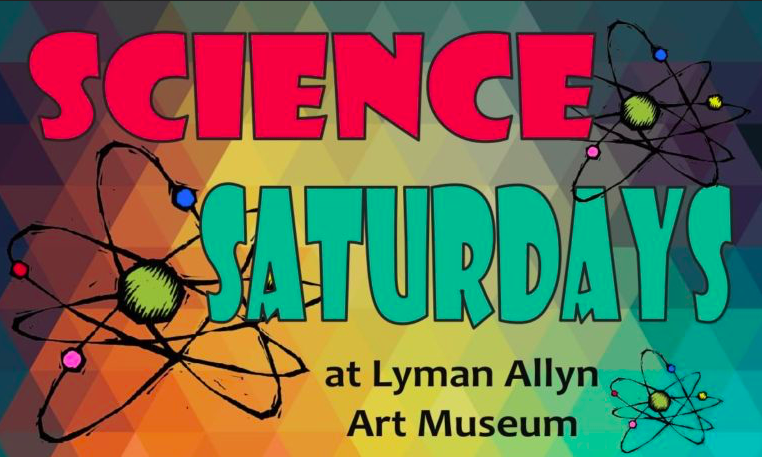The art studio on the second floor of the Lyman Allyn is airy and open, with light streaming in from countless windows. It’s quiet now, but on weekends it’s packed and bustling with the noise of children. Science Saturdays, a program emphasizing the interaction between art and science, takes place here the third Saturday of every month from 11am to 1 pm. All programs are free with museum admission. The program is geared toward kids ages 7-11, but Caitlin Healy, the Director of Education at the Lyman Allyn, stressed that all are welcome, regardless of age.
The Lyman Allyn, founded in 1926, is home to an impressive collection of over 10,000 objects ranging from European and non-Western art, American paintings and contemporary pieces. Their American paintings, notably works by Thomas Cole, Frederic Edwin Church, and Winslow Homer, are extremely popular and frequently requested for reproduction and loan exhibitions. The Lyman Allyn is a great resource for Connecticut College students—often utilized by art history classes and professors, and offers free admission to students.
Science Saturdays are run by Healy, who comes up with all the projects, but were started by her predecessor, Mollie Clarke, who spearheaded the idea, along with the current External Affairs Officer, Vera Harsh. Healy inherited the project, which hadn’t yet gotten funding, when she became the Director of Education. After applying for numerous grants, funding ended up coming from local companies: Pfizer Inc. and Groton Laboratories, a pharmaceutical company located in Groton, CT.
The main idea behind creating Science Saturdays, was to expand the STEM programs in schools (Science, Technology, Engineering, and Mathematics) to STEAM (Science, Technology, Engineering, Art and Mathematics), to show the public that the arts and sciences are deeply intertwined and interconnected. “STEM education” was a term coined in 2015 by the U.S. Department of Education. STEAM incorporates the arts, and recognizes the influence and importance art has in the sciences, and in the understanding of our world overall. While there is some debate over whether the arts belong, Healy strongly believes they do. Every Science Saturday includes a gallery learning session, where kids are introduced to real pieces created in the style they’ll be copying, a mini-experiment and finally, the hands-on art project. Healy particularly tries to stress the science behind the art.
Healy aims to tie current exhibitions on view at the Lyman Allyn into Science Saturdays whenever possible. Recently, the museum had an exhibition on coral called “The Coral Reef Project” where, kids created coral reef prints that month at Science Saturday. In December, when the museum had a show titled “On Another Note,” featuring more than 40 works of art, all inspired by music, kids made their own musical instruments. Healy uses the Connecticut education standards for children ages 7-11 to decide on the science topics used. Some of the future events include cubic bubbles—kids will create a 3-D bubble wand—watercolor sun prints, and How Shocking! experiments with electricity, and magnet paintings. The rest of the upcoming Science Saturday agendas are listed on the Lyman Allyn website, through December.
Science Saturdays have been a staple of museum life for over a year—the first was in October 2016, and since then, they’ve remained popular and well-attended. The funding from Pfizer Inc. and Groton Laboratories lasts until the end of the year, but the Lyman Allyn plans to continue hosting Science Saturdays for as long as possible They are a “…really important aspect of the arts that not all art museums have,” says Healy. “The evolution of man is the evolution of art, and that is all science.”










